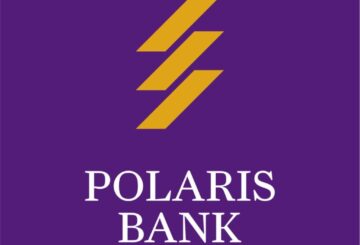 The Presidential Economic Advisory Council has faulted a provision in the Petroleum Industry Bill currently before the National Assembly that recommended that the Federal Government should hold 100 per cent shares in Nigerian National Petroleum Corporation Limited.
The Presidential Economic Advisory Council has faulted a provision in the Petroleum Industry Bill currently before the National Assembly that recommended that the Federal Government should hold 100 per cent shares in Nigerian National Petroleum Corporation Limited.
Instead, it said the corporation should be commercialised.
The President, Major General Muhammadu Buhari (retd.), had in 2019 set up the council chaired by Prof. Doyin Salami, to replace the regime’s defunct Economic Management Team led by Vice-President Yemi Osinbajo.
The council, charged with the responsibility of advising the President on economic policy matters including fiscal analysis, economic growth and a range of internal and global economic issues working with the relevant cabinet members and heads of monetary and fiscal agencies, reports directly to Buhari.
It made its position known in its presentation at its sixth regular meeting with the President last Friday.
According to a copy of the presentation obtained by The PUNCH, the council also opposed another provision in the PIB that recommended two regulators for the industry, saying one regulator was enough.
On NNPC commercialisation and the PIB’s position that government should hold 100 per cent shares in NNPC Limited, the council said the ideal position is to “prepare company for Initial Public Offer so the enterprise can raise its own funding. Board composition should have more independent members for governance.”
While the bill provided for two regulators –a commission for upstream regulation and an authority to oversee mid and downstream regulation, PEAC said the ideal situation is that “One regulator with relevant departments will be more efficient and allow for greater synergy in regulating the entire industry value-chain. Examples are Nigerian Communications Commission and the Nigerian Electricity Regulatory Commission.”
On deregulation of petroleum product prices, while the PIB said price regulation continues for gas supply to power and gas-based industries, PEAC said the ideal situation is that “deregulation is key to stimulating investment. To avoid price shocks, a transitional arrangement can be included. Such arrangement must specify timeline to end price regulation.
“The need for the PIB to encourage investment in Nigeria’s Oil and Gas sector by adopting a single sector regulator instead of multiple regulators currently proposed; deregulation of gas prices and prepare the NNPC for commercialisation through a sell-down of government shares; and establish a ‘one-stop shop’ to ensure accelerated approval for priority oil sector projects,” PEAC said.
While noting the progress of the bill through the National Assembly, PEAC said its importance to the national economy could not be overstated.
When enacted, the council said the law would have what it called a profound effect beyond the oil and gas sector.
“Potentially, this bill could provide a basis for building and industrial economy for Nigeria.
“Implementation of the Paris Agreement has seen a continuous global transition away from fossil fuels towards renewables as primary energy source.
“The PIB will join the National Petroleum Policy and the National Gas policy in defining the environment for investment in the oil and gas sector and also influence sentiment around Nigeria as an investment destination,” it added.
The Salami-led council however said the enactment of the bill would not of itself immediately stimulate investment needed in the oil and gas sector.
It said Nigeria should identify key strategic projects that will enable achievement of the various objectives –ranging from increased oil production through expansion of gas pipelines.
These projects, according to the council, should then be the subject of discussion with oil sector operators –International Oil Companies and indigenous companies.
It made a case for a process of accelerated approval similar to the NLNG model in 1982 with the intention being to ensure that before the end of this regime’s tenure, investment decisions can be taken.


